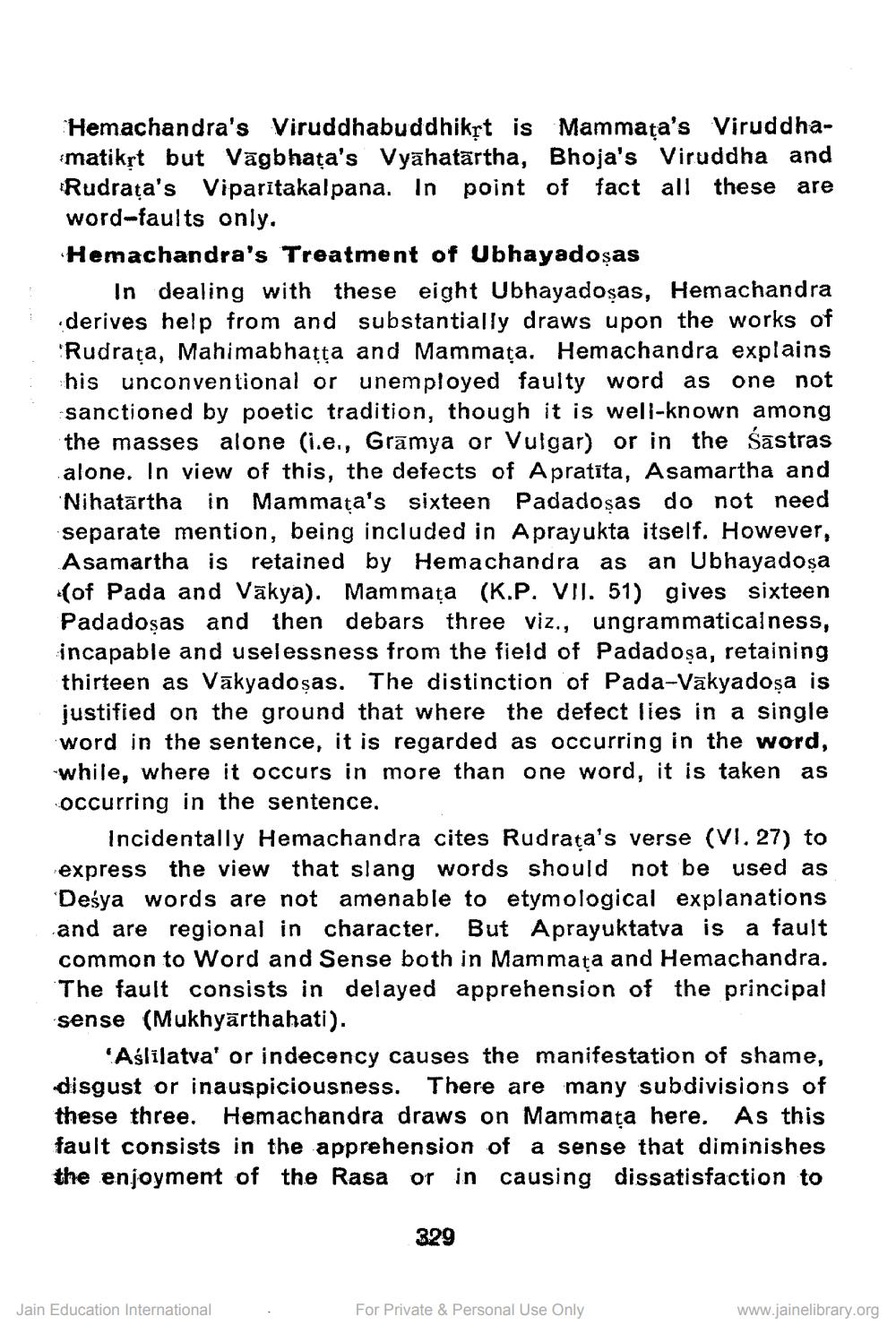________________
Hemachandra's Viruddhabuddhikrt is Mammața's Viruddhamatikrt but Vāgbhata's Vyāhatārtha, Bhoja's Viruddha and Rudrata's Viparītakalpana. In point of fact all these are word-faults only. Hemachandra's Treatment of Ubhayadosas
in dealing with these eight Ubhayadosas, Hemachandra derives help from and substantially draws upon the works of Rudrața, Mahimabhatta and Mammața. Hemachandra explains his unconventional or unemployed faulty word as one not sanctioned by poetic tradition, though it is well-known among the masses alone (i.e., Grāmya or Vulgar) or in the śāstras alone. In view of this, the defects of Apratīta, Asamartha and Nihatārtha in Mammața's sixteen Padadosas do not need separate mention, being included in Aprayukta itself. However, Asamartha is retained by Hemachandra as an Ubhayadosa (of Pada and Vākya). Mammața (K.P. VII. 51) gives sixteen Padadosas and then debars three viz., ungrammaticalness, incapable and uselessness from the field of Padadosa, retaining thirteen as Vākyadosas. The distinction of Pada-Vākyadoşa is justified on the ground that where the defect lies in a single word in the sentence, it is regarded as occurring in the word, while, where it occurs in more than one word, it is taken as occurring in the sentence.
Incidentally Hemachandra cites Rudrata's verse (VI. 27) to express the view that slang words should not be used as Desya words are not amenable to etymological explanations and are regional in character. But Aprayuktatva is a fault common to Word and Sense both in Mammața and Hemachandra. The fault consists in delayed apprehension of the principal sense (Mukhyārthahati).
'Aslilatva' or indecency causes the manifestation of shame, disgust or inauspiciousness. There are many subdivisions of these three. Hemachandra draws on Mammața here. As this fault consists in the apprehension of a sense that diminishes the enjoyment of the Rasa or in causing dissatisfaction to
329
Jain Education International
For Private & Personal Use Only
www.jainelibrary.org




